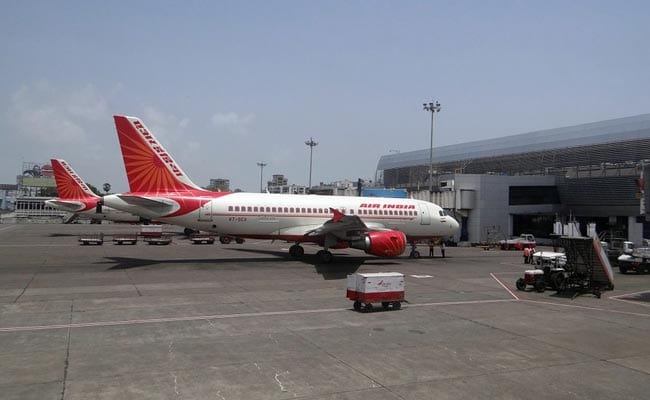Cairn has reportedly sued Air India in a New York court to enforce a $1.2 billion arbitration award that it won against the government in a tax dispute.

Cairn says that Air India, as a state-owned company, is “legally indistinct from the state itself”.
New Delhi:
The Indian government is ready to defend any attempt by Cairn Energy to take over its assets including Air India, sources said on Sunday, following reports that the British firm had sued India’s flagship carrier to enforce a $1.2 billion arbitration award that it won in a tax dispute.
“The government is yet to receive formal notice of any such claims and hence these reports are purely in the realm of speculation. The government is well aware of its legal rights and will defend its case in courts should such proceedings materialise,” government sources said.
“It is equally confident of winning its appeal in The Hague. Cairn did not pay a single rupee tax anywhere in the world in respect of the impugned transactions. Cairn had also lost its appeal before the Income-Tax Tribunal,” they added.
The response came after news agency Reuters reported that Cairn filed a lawsuit on Friday in the US District Court for the Southern District of New York, seeking to make Air India liable for the judgment that was awarded to Cairn. The lawsuit argued that the carrier as a state-owned company is “legally indistinct from the state itself”.
The move ratchets up pressure on India’s government to pay the sum of $1.2 billion-plus interest and costs that Cairn was awarded by an arbitration tribunal in December. The body ruled India breached an investment treaty with Britain and said New Delhi was liable to pay.
“The nominal distinction between India and Air India is illusory and serves only to aid India in improperly shielding its assets from creditors like (Cairn),” the filing said.
Cairn’s move risks jeopardising India’s attempts to divest the state-owned carrier this year. New Delhi said in December that it had received multiple expressions of interest after it moved to privatise the loss-making entity.
Cairn had begun taking steps in January to identify Indian assets overseas against which it could enforce the award including bank accounts, aircraft and even ships. It had also started registering its claim against India in courts in the United States, Great Britain, Netherlands and Canada.
Reuters last week reported that India had asked state-run banks to withdraw funds from their foreign currency accounts abroad, fearing Cairn might sue to seize the funds.
Cairn had said previously it was pursuing a settlement with India, but in the interim, it has also been laying the grounds to seize Indian assets should talks fail.
Commenting on the suit, a company spokesman on Saturday said that Cairn was taking the necessary legal steps to protect shareholder interests in the absence of a resolution.
He said that “Cairn remains open to continuing constructive dialogue with the Government of India” to reach a settlement.
An Indian official told Reuters last week, talks between New Delhi and the company were making “little progress” and noted that India’s directive to state-run banks to withdraw foreign currency funds sitting overseas showed the government is worried that Cairn may move quickly to seize assets.
It is unclear whether the suit against Air India could serve as a means for Cairn to seize Air India aircraft that land on US soil.
Earlier this year, a Malaysian court allowed the seizure of a Pakistan International Airlines Boeing 777 aircraft that landed in Kuala Lumpur, after Dublin-based AerCap had filed suit in a British court over unpaid dues. The jet was released nearly two weeks later after the two sides reached an amicable settlement.
Air India is the only Indian carrier that flies long-haul flights to destinations in the United States and Canada. The frequency of its overseas flights has recently been impacted as the second wave of the pandemic that has hit India, has prompted nations to restrict or ban travel from the country.
(With inputs from Reuters)
